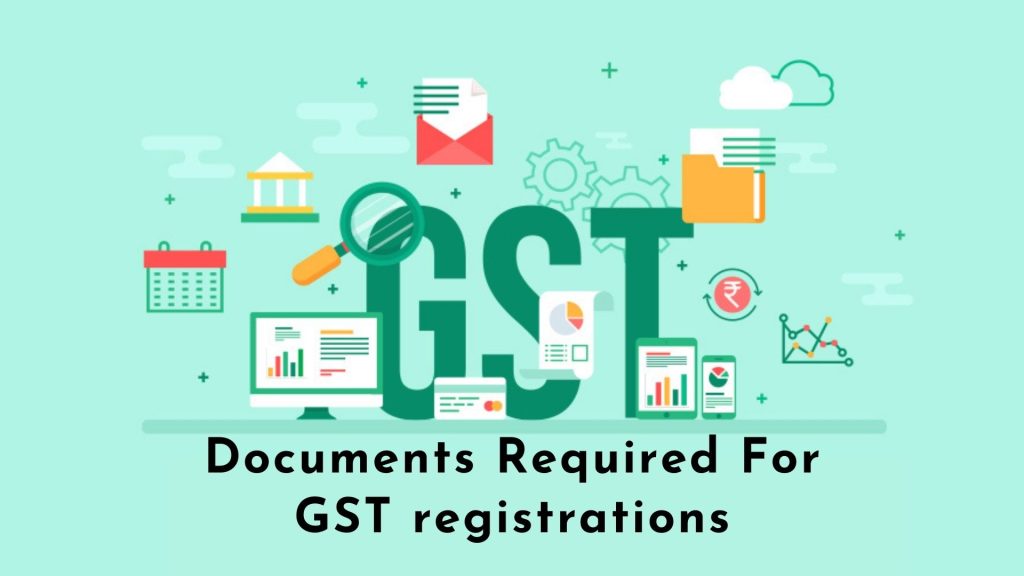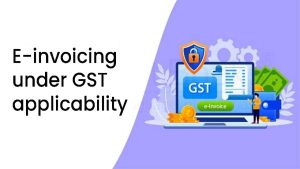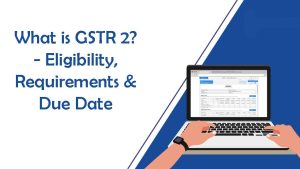As per a recent announcement from the Central Board of Indirect Taxes and Customs, some goods providers with an annual turnover of less than Rs./10 lakh are exempt from GST registration. Nonetheless, knowing how to register for GST as an MSME owner is always useful because you may be in the service sector and the law may change at any time. To join properly, you must provide the required GST registration documents, such as your PAN card, Aadhaar card, and proof of residence.

As per the latest announcement, some goods providers with an annual turnover of less than Rs./10 lakh are exempt from GST registration. Nonetheless, knowing how to register for GST as an MSME owner is always useful because you may be in the service sector and the law may change at any time.
You must provide the required GST registration documents, such as your PAN card, Aadhaar card, and proof of residence.
- Individuals who offer taxable products and services over state lines.
- People are subject to reverse charge taxation.
- Non-resident taxable persons
- People are entitled to a tax deduction under Section 37 of the Internal Revenue Code.
- Individuals who provide products and services on behalf of another registered taxpayer as an agent or in any other capacity.
- Individuals who operate as input service distributors.
- Every e-commerce operator.
- Aggregators that provide their services under a new brand or trade name.
- Any other person or group of people notified by the Central or State Government in accordance with the GST Council’s recommendations.
Document that you need to have for GST registration
PAN Card of the Business or Applicant
All regular taxpayers must present the following paperwork when filing for GST registration. The taxpayer must submit the PAN number while registering for GST; as a consequence, all enterprises must link their PAN for tax and legal purposes.
Identity and Address Proof along with Photographs
The persons listed below must show photocopies of their IDs and evidence of residency. As proof of identity, documents such as a PAN, passport, driver’s license, Aadhaar card, or voter’s identification card may be shown. As proof of residency, documents such as a passport, driver’s license, Aadhaar card, voters identity card, and ration card may be shown.
- Proprietary Concern – Proprietor
- Partnership Firm or LLP – Managing, Authorized, Designated Partners (Should submit the personal details of all partners along with photos of ten Managing Partners)
- Hindu Undivided Family – Karta
- Company – Managing Director, Directors and the Authorized Person
- Trust – Managing Trustee, Trustees and Authorized Person
- Association of Persons or Body of Individuals –Members of Managing Committee (personal details of all members are to be submitted, but photos of only ten members including that of Chairman are to be submitted)
- Local Authority – CEO or his equivalent
- Statutory Body – CEO or his equivalent
- Others – Person(s) in Charge
Business Registration Document
Individuals must provide evidence of business in order to register for all types of organizations. In the event of a partnership corporation, however, the taxpayer must present the partnership deed. In the case of an LLP or Company, the incorporation certificate must be supplied. A registration certificate may be issued to many different types of organizations, including a society, trust, club, government entity, or group of people.
Address Proof for Place of Business
For GST registration, the individual in question must provide address verification for all of the specified business locations. The following documents are approved as proof of address for GST registration.
- For Own premises
Any documentation verifying property ownership, such as the most current property tax receipt, a copy of the Municipal Khata, or a copy of the Electricity Bill.
- For Rented or Leased Premises
A copy of the formal rental agreement, as well as any document demonstrating the Lessor’s ownership of the premises, such as the most current Property Tax Receipt, a copy of the Municipal Khata, or a copy of the Electricity Bill. If a rental agreement or lease deed is not available, an affidavit and any document confirming ownership of the property, such as a copy of an energy bill, will suffice.
SEZ Premises
If the applicant’s major activity is carried out in an SEZ or if the applicant has registered as an SEZ, the applicant must submit all essential paperwork as prescribed by the government.
All Other Cases
In all other cases, a copy of the owner’s permission letter, as well as any document verifying the Consenter’s ownership of the property, such as a copy of the Municipal Khata or an Electricity Bill. The same materials may also be uploaded on shared properties.
Bank Account Proof
Scanned copy of the first page of the bank passbook or corresponding page of the bank statement, or scanned copy of a canceled cheque showing the name of the Proprietor or Business entity, Bank Account No., MICR, IFSC, and Branch data including code.
Digital Signature
All GST registration applications must be signed digitally with a Class 2 Digital Signature. As a result, before beginning the application process, it is critical to obtain a digital signature for the following individuals who are authorized to sign the GST registration application.



